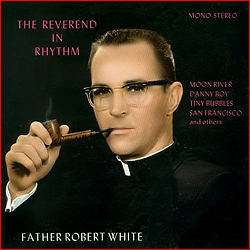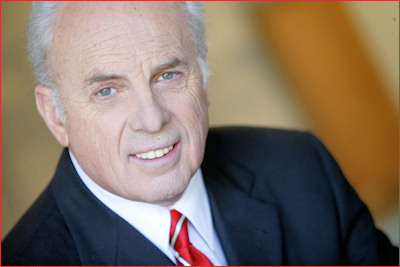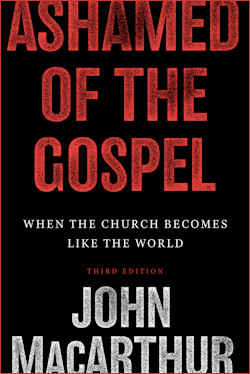Why Fornication Is Peculiarly Evil
by Phil Johnson


t the heart of all the problems in the church at Corinth was a tendency to let the values of that debauched culture seep into the church. That's something for missional Christians to consider today: cultural assimilation as a strategy for church growth in a pagan culture is fraught with serious dangers. Especially in a city filled with both temples and brothels—where fornication was literally deemed a religious rite—the
worst thing the church could do would be to take a lax attitude toward sexual sin.
The vast majority of the Jewish community in Corinth had rejected the gospel (Acts 18:6). So the church was made up of mostly Gentiles who, of course, came from a culture that was not inclined to see sexual sin as unspiritual. Just the opposite. Most of the "religion" in Corinth involved temple prostitution and debauched sexual behavior.
That may explain somewhat
why the Corinthian church would receive into their membership a man who was fornicating with his father's wife (1 Corinthians 5:1). Perhaps they thought they could connect with their culture better if they casually accepted the man's sin without flinching. In fact, it seems clear that some of the people in the Corinthian church did indeed wear extreme tolerance like a badge of honor. First Corinthians 5:2 says people in the Corinthian assembly were puffed up. They actually took some sort of perverse pride in their liberality towards such a grossly immoral act.
Not only was this guy's incest a supremely immoral and deeply shameful sin; it wasn't
really impressing even the most immoral people in the Corinthian culture. Incest was a sin that even shocked the grossest pagans of Corinth (v. 1).
Paul wasn't gentle in his rebuke. He ordered the Corinthians to excommunicate the man (vv. 7, 13).

Notice: Paul wasn't impressed with how sophisticated and missional the Corinthians were. In fact (this can hardly be stressed enough) Paul
never encouraged the Corinthians to blend into their culture by adopting an easygoing familiarity with or an extra-tolerant attitude toward the distinctive sins of that culture. On the contrary, he stressed the importance of avoiding the sins associated with Corinthian paganism.
No, I take it back.
"Avoiding" is too mild in light of what Paul actually told them:
"Flee from sexual immorality" (1 Corinthians 6:18).
But first he hammers them with several these reasons why fornication is such an unholy, degrading, defiling sin. He gives several reasons:
First Corinthians 6:13:
It dishonors the purpose for which God made our bodies. "The body is not meant for sexual immorality, but for the Lord." Fornication takes that which ought to be holy—that which was made uniquely in the image of God (with the express purpose of honoring Him)—and puts it to an unholy use instead. That's wrong because (he says) "the body is . . . for the Lord." That is the main thought and the central thread of 1 Corinthians 613-20. But there's more.
In verses 15-17, he gives a second reason why fornication is such a serious sin:
it defiles our spiritual union with Christ. "Do you not know that your bodies are members of Christ? Shall I then take the members of Christ and make them members of a prostitute? Never! Or do you not know that he who is joined to a prostitute becomes one body with her? For, as it is written, "The two will become one flesh." But he who is joined to the Lord becomes one spirit with him."
Do the math, he says. If you are one with Christ in an intimate spiritual union, and then through an act of fornication you become one flesh with a harlot in an intimate fleshly union, you have in effect defiled the body of Christ.
A couple of things to notice about this: First, our union with Christ is so perfect and so complete that it encompasses our whole person. It's not limited to our spirit only apart from our flesh. The whole person, both body and spirit, are Christ's by virtue of our spiritual union with Him.
Paul here stands in contrast to certain pseudo-Christian proto-Gnostics who taught that spirit is good and matter is evil. They taught that our spirit is redeemed, and made holy, and united with Christ, but the body is unredeemed and completely unholy and fit only for ultimate destruction.
They said you could sin in the body without defiling your spirit.
Here Paul teaches otherwise. Notice that he doesn't say the body is evil. Just the opposite. His whole point is that the body is made for a
holy purpose: to glorify God. Verse 14: "God raised the Lord and will also raise us up by his power." Christ rose bodily, and our bodies will also be raised and glorified in physical form. So there's nothing
inherently unholy about the body.
On the contrary, "the body is . . . for the Lord; and
the Lord for the body." God is not
against the body; he is for it. He created it; and He is the one who made our bodies so that they are capable of enjoying pleasure. There's nothing wrong with that pleasure. It's a holy pleasure—as long as it is a fulfillment of, and not a corruption of, God's purposes.
In fact, in verse 16, Paul is alluding to Genesis 2:24, "Therefore a man shall leave his father and his mother and hold fast to his wife, and they shall become one flesh."
That is God's purpose for men and women. Sex in the context of lifelong marriage—the union of two partners devoted to one another above all others—is a holy pleasure. God designed it for our pleasure. It's holy and honorable within the marriage relationship, and according to Hebrews 13:4, "the marriage bed [is] undefiled."
But that same verse in Hebrews 13 says, "God will judge the sexually immoral and adulterous." Paul says the same thing in verses 9-10 of 1 Corinthians 6. Neither "fornicators . . . nor adulterers . . . shall inherit the kingdom of God." And those who defile their union with Christ by committing sins of sexual immorality are guilty of an abominable offense against Christ and (v. 18) "against his own body." In other words, fornication is a unique and especially unholy sin, because it defiles our union with Christ.
But Paul is not finished. In verse 19 (this is where our passage starts) he says
such sins of the body also desecrate the Temple of the Holy Spirit. Your body is the dwelling-place of the Spirit of God, and therefore for a Christian to debase the body is to profane a holy temple.

Now, put all this together. You want to know why fornication has always been regarded as a particularly heinous sin? Because it involves personal and direct transgressions against each Member of the Trinity. It debases and dishonors the body, which (v. 13) is "for the Lord." God created it for His purposes. To use it for any other purpose—especially a purpose as evil as an act of fornication—is a sin against God the Father. It's a sin against Christ as well (v. 15), because it takes our members, which are Christ's by union with Him, and joins them to a harlot, defiling our holy union with Christ. And it's a sin against the Holy Spirit (v. 19), because it desecrates the temple in which He dwells.
And notice Paul's counsel to the Corinthians. He doesn't urge them to get into a recovery program for sexual addicts. He doesn't suggest that they get therapy.
He just tells them to stop it.
No, again. It's more urgent than that (v. 18):
"Flee fornication." Run from it. Avoid any and all temptations to it. Direct your feet, and your eyes, and your ears, and your thoughts to other things. This is a sin to
flee. "Other vices may be conquered in fight; this one can be conquered only by flight."
In Solomon's words (Proverbs 5:8), "Keep your way far from her, and do not go near the door of her house." Scripture says we should flee even the
thought of adultery. Second Timothy 2:22: "Flee youthful passions and pursue righteousness, faith, love, and peace, along with those who call on the Lord from a pure heart." First Peter 2:11 says "fleshly lusts . . . [wage] war against the soul." Flee them. Abstain from them completely.
And notice: Paul finds the highest reason to avoid fornication in the atonement: "You are not your own, for you were bought with a price. So glorify God in your body" (v. 20).






 A Word on Worldliness
A Word on Worldliness he following is excerpted from a sermon titled "The Lord's Own View of His Church and People," preached at the Metropolitan Tabernacle, London, and first published in 1887.
he following is excerpted from a sermon titled "The Lord's Own View of His Church and People," preached at the Metropolitan Tabernacle, London, and first published in 1887. Here Spurgeon responded to the notion—already prevalent in the mid-nineteenth century—that the way to win the world is to cater to worldly tastes. Churches were offering entertainments as a way of "reaching" the unreached. Preachers were adapting their messages in order to tone down the offense of the cross and reflect the prevailing "scholarship" of the times. Those who opposed these innovations and defended the unvarnished gospel (especially Spurgeon) were derided as harsh, unsophisticated, provincial, or brutish troublemakers.
Here Spurgeon responded to the notion—already prevalent in the mid-nineteenth century—that the way to win the world is to cater to worldly tastes. Churches were offering entertainments as a way of "reaching" the unreached. Preachers were adapting their messages in order to tone down the offense of the cross and reflect the prevailing "scholarship" of the times. Those who opposed these innovations and defended the unvarnished gospel (especially Spurgeon) were derided as harsh, unsophisticated, provincial, or brutish troublemakers. The church is a separate and distinct thing from the world. I suppose there is such a thing as "the Christian world"; but I do not know what it is, or where it can be found. It must be a singular mixture. I know what is meant by a worldly Christian; and I suppose the Christian world must be an aggregate of worldly Christians. But the church of Christ is not of the world. "Ye are not of the world," says Christ, "even as I am not of the world."
The church is a separate and distinct thing from the world. I suppose there is such a thing as "the Christian world"; but I do not know what it is, or where it can be found. It must be a singular mixture. I know what is meant by a worldly Christian; and I suppose the Christian world must be an aggregate of worldly Christians. But the church of Christ is not of the world. "Ye are not of the world," says Christ, "even as I am not of the world."

 Salad Days
Salad Days
 First, what seems really hip today might just make you look like
First, what seems really hip today might just make you look like  > why would you question a brother
> why would you question a brother

 t the heart of all the problems in the church at Corinth was a tendency to let the values of that debauched culture seep into the church. That's something for missional Christians to consider today: cultural assimilation as a strategy for church growth in a pagan culture is fraught with serious dangers. Especially in a city filled with both temples and brothels—where fornication was literally deemed a religious rite—the worst thing the church could do would be to take a lax attitude toward sexual sin.
t the heart of all the problems in the church at Corinth was a tendency to let the values of that debauched culture seep into the church. That's something for missional Christians to consider today: cultural assimilation as a strategy for church growth in a pagan culture is fraught with serious dangers. Especially in a city filled with both temples and brothels—where fornication was literally deemed a religious rite—the worst thing the church could do would be to take a lax attitude toward sexual sin. Notice: Paul wasn't impressed with how sophisticated and missional the Corinthians were. In fact (this can hardly be stressed enough) Paul never encouraged the Corinthians to blend into their culture by adopting an easygoing familiarity with or an extra-tolerant attitude toward the distinctive sins of that culture. On the contrary, he stressed the importance of avoiding the sins associated with Corinthian paganism.
Notice: Paul wasn't impressed with how sophisticated and missional the Corinthians were. In fact (this can hardly be stressed enough) Paul never encouraged the Corinthians to blend into their culture by adopting an easygoing familiarity with or an extra-tolerant attitude toward the distinctive sins of that culture. On the contrary, he stressed the importance of avoiding the sins associated with Corinthian paganism. Now, put all this together. You want to know why fornication has always been regarded as a particularly heinous sin? Because it involves personal and direct transgressions against each Member of the Trinity. It debases and dishonors the body, which (v. 13) is "for the Lord." God created it for His purposes. To use it for any other purpose—especially a purpose as evil as an act of fornication—is a sin against God the Father. It's a sin against Christ as well (v. 15), because it takes our members, which are Christ's by union with Him, and joins them to a harlot, defiling our holy union with Christ. And it's a sin against the Holy Spirit (v. 19), because it desecrates the temple in which He dwells.
Now, put all this together. You want to know why fornication has always been regarded as a particularly heinous sin? Because it involves personal and direct transgressions against each Member of the Trinity. It debases and dishonors the body, which (v. 13) is "for the Lord." God created it for His purposes. To use it for any other purpose—especially a purpose as evil as an act of fornication—is a sin against God the Father. It's a sin against Christ as well (v. 15), because it takes our members, which are Christ's by union with Him, and joins them to a harlot, defiling our holy union with Christ. And it's a sin against the Holy Spirit (v. 19), because it desecrates the temple in which He dwells.








 t the moment the Relevant Magazine website is featuring an article titled
t the moment the Relevant Magazine website is featuring an article titled  Here's a sampling of what Relevant Magazine actually does care about:
Here's a sampling of what Relevant Magazine actually does care about: 
 've had
've had 


 atan will tell you that, if you bend a little; and come near to the ungodly, then they also will come a little way to meet you.
atan will tell you that, if you bend a little; and come near to the ungodly, then they also will come a little way to meet you.

 y the early '90s American evangelicalism was shamelessly imitating virtually every worldly fad. Church leaders and church-growth strategists openly described the gospel as a commodity to be sold at market, and the predictable result was a frantic attempt to make the gospel into the kind of product most buyers wanted. The conventional wisdom was that sophisticated marketing strategies were far more effective than gospel proclamation for reaching the "unchurched" multitudes. No one, it seemed, wanted to challenge that notion, which was buttressed with countless opinion polls. And who could argue with the obvious "success" of several entertainment-oriented megachurches?
y the early '90s American evangelicalism was shamelessly imitating virtually every worldly fad. Church leaders and church-growth strategists openly described the gospel as a commodity to be sold at market, and the predictable result was a frantic attempt to make the gospel into the kind of product most buyers wanted. The conventional wisdom was that sophisticated marketing strategies were far more effective than gospel proclamation for reaching the "unchurched" multitudes. No one, it seemed, wanted to challenge that notion, which was buttressed with countless opinion polls. And who could argue with the obvious "success" of several entertainment-oriented megachurches? Western evangelicals had been gradually losing interest in biblical preaching and doctrinal instruction for decades. The church in America had become weak, worldly, and man-centered. Evangelical ears were itching for something more hip and entertaining than biblical preaching (cf. 2 Tim. 4:3), and business-savvy evangelical pundits declareed that it was foolish not to give people what they demanded. Without pragmatic methodologies numerical growth would be virtually impossible, they insisted—even though such pragmatism was manifestly detrimental to spiritual growth.
Western evangelicals had been gradually losing interest in biblical preaching and doctrinal instruction for decades. The church in America had become weak, worldly, and man-centered. Evangelical ears were itching for something more hip and entertaining than biblical preaching (cf. 2 Tim. 4:3), and business-savvy evangelical pundits declareed that it was foolish not to give people what they demanded. Without pragmatic methodologies numerical growth would be virtually impossible, they insisted—even though such pragmatism was manifestly detrimental to spiritual growth.


 ack in August of '08, I wrote
ack in August of '08, I wrote 
 McManus's current project is further removed from the proclamation of the gospel than anything you'll ever see from Osteen—and that's saying something. McManus is
McManus's current project is further removed from the proclamation of the gospel than anything you'll ever see from Osteen—and that's saying something. McManus is 








